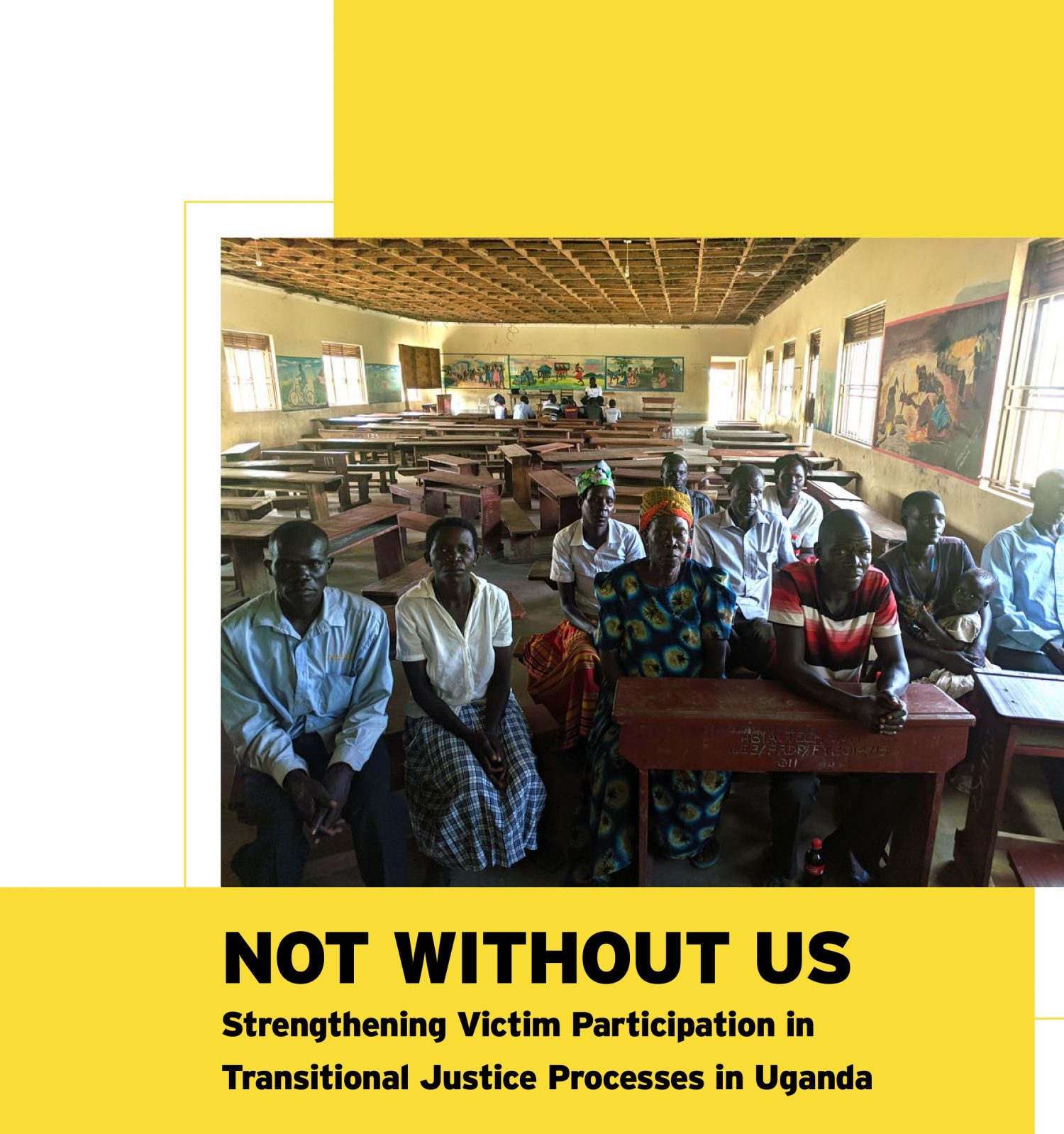
Victims of the 20-Year Conflict in Uganda Mostly Sidelined from the Transitional Justice Process: New report finds
More than 10 years after the 20-year conflict in Uganda ended, victims continue to be mostly sidelined in the transitional justice processes that affect them, a new report by REDRESS and its Ugandan partners Emerging Solutions Africa and the Uganda Victims’ Foundation, Not Without Us, finds.
Despite the fact that victim participation is reflected in transitional justice policy documents in Uganda, victims have had little opportunity to influence and impact the design and shaping of the National Transitional Justice Policy (NTJP), the report finds.
The engagement with victims by the Justice Law and Order Sector, the technical body of the government responsible for the design and administration of the national NTJP, has primarily been via information sharing or consultations in collaboration with civil society organisations and some grassroots organisations representing victims.
Many victims who live in remote rural villages (the areas most affected during the war in the North of Uganda) have had little information about and understanding of what the NTJP, the mechanisms for accountability and reconciliation, and timelines for the implementation of priority issues such as reparations entail.
The delayed passage of the NTJP and the protracted process of drafting the pending TJ Bill that will give effect to the policy provisions, together with the unfulfilled promises made for reparations, have caused victims to question the integrity of the process and the sincerity of those involved in it.
Other findings in the report include:
- Victims have had limited opportunities to participate in accountability process at the national level, in particular in the case against former LRA commander Thomas Kwoyelo before the International Crimes Division (ICD). Impunity for the heinous crimes committed during the internal conflict remains pervasive.
- While reparations are a priority for Ugandan victims, more than 90% of those consulted in the report indicate that they have not received any form of reparations from the government, including victims of sexual violence who need urgent medical and psychosocial assistance.
- Victims and affected communities want to hear the truth about the conflicts that destroyed their lives and communities and strongly favour a national process which includes leadership at the highest level, from victims, perpetrators and rebel leaders.
The report includes a number of recommendations to national policy makers, civil society organisations and international stakeholders, including:
- It calls on the Government of Uganda to take the appropriate measures to ensure that victims are effectively at the center of the government’s TJ efforts, and to ensure the enactment of the TJ Bill within the next parliamentary year. Pending the passage of the TJ Bill, it also urges the government to develop a Gender Action Plan (GAP) with a clear strategy for providing interim reparations to SGBV victims.
- It calls on the Justice Law and Order Sector to ensure that the reparations program addresses systemic gaps in education and livelihood support that victims face as a direct consequence of the conflict.
- It urges civil society organisations to enable spaces for the victims and community members to speak for themselves by supporting victims and victims’ groups to access political platforms and spaces and to initiate action with real political leverage.
- It calls on donors to create peer pressure through diplomacy and political dialogue with the Ugandan government and by publicly pushing for the TJ Bill to be passed and TJ implementation to be a priority.
The report is based on research and activities carried out by REDRESS, Emerging Solutions Africa (ESA) and the Uganda Victims’ Foundation (UVF), between November 2017 and March 2020, under the project: Strengthening Victim Participation in the Fight against Impunity for International Crimes. Activities included victim forums in the areas most affected by the war and high-level policy conferences in Kampala and The Hague. The project aimed to support victims of international crimes and the local organisations assisting them to participate meaningfully in local, national, and international transitional justice processes.
“None of the goals of transitional justice can be truly achieved without the meaningful participation of victims, which are best placed to articulate their needs. Those whose rights have been grossly violated need to have ownership of the process and see tangible results that address their suffering,” said Alejandra Vicente, Head of Law of REDRESS.
For more information or for an interview, please contact Alice Etam, ESA Legal Officer, on +256 781 448143; Chris Ongom, Executive Director of UVF on +256 782 499532, or Eva Sanchis, Head of Communications of Redress, on +44 07857 110076 or [email protected].
